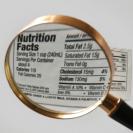By passing PACE, your municipality agrees to let homeowners pay back investments on energy renovations to their homes over time through a separate assessment on their property tax bill. So if your town adopts PACE, and you want to make your home more efficient or install solar panels (for example), you’ll be able to pay for them by putting a little extra every month on your property tax bill, rather than going through the hassle of getting a personal or home equity loan. In many cases, your energy savings every month will more than cover your monthly payment. What’s more, if you ever sell your home, the cost of the energy upgrades stay with the house, so you can’t get stuck paying for someone else’s savings.






